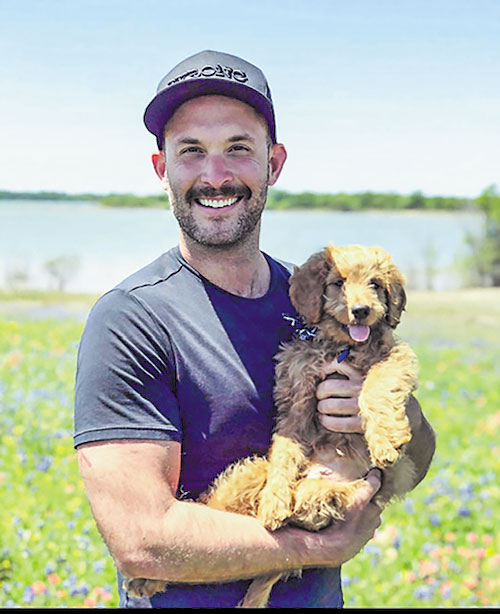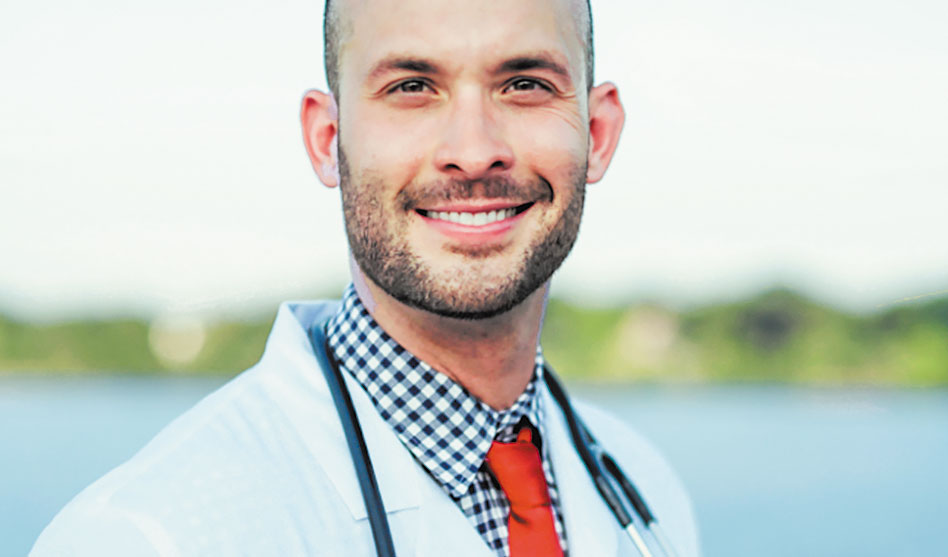Dr. Zachary Ripp
OB/GYN Dr. Zachary Ripp, whose new clinic in Lakewood has a growing list of trans men patients, says for him, ‘professional’ means being the best possible doctor for his patients
 For Zachary Ripp, who grew up in Greenville, Texas as the son of a doctor and was fascinated by science and “how things work,” growing up to be a doctor in Dallas was almost predestined. And now, with his recently opened Women First Lakewood clinic, he is looking forward to taking the next step in his career.
For Zachary Ripp, who grew up in Greenville, Texas as the son of a doctor and was fascinated by science and “how things work,” growing up to be a doctor in Dallas was almost predestined. And now, with his recently opened Women First Lakewood clinic, he is looking forward to taking the next step in his career.
Dr. Ripp took time out of his busy schedule this week to answer a few questions about his life and his practice for Dallas Voice.
— Tammye Nash
Dallas Voice: First of all, tell me about your background. Where did you grow up? Where did you go to college and medical school? If you are not from Dallas, what made you decide to go into practice here? Dr. Zachary Ripp: I grew up one of six children in Greenville, Texas. I went to school at UT-Austin, and then moved to Chicago for medical school at Loyola. Four Chicago winters were enough to convince me to move back home for residency at UT Southwestern/Parkland. Not only do my parents and most of my siblings live here, I’m also a big fan of Dallas. Four years ago, I fulfilled my childhood dream of buying a house in the “M Streets,” and I couldn’t be happier.
What made you want to be a doctor? What influenced you to go into obstetrics/gynecology, as opposed to general practice or some other specialty? My dad was a doctor, so I heard about medicine every night at the dinner table. In college, I thought about advertising or business, but I always came back to science/pre-med because I enjoyed learning how things worked and because of the difficulty of the classes.
In college I was heavily involved with sexual health volunteering and access to birth control, so OBGYN seemed like a natural fit. When I got to medical school, I realized that with OBGYN you get to do medicine and surgery, and you also get to be a part of one of the most important days of people’s lives. Despite the hours being terrible, sometimes delivering babies is super rewarding, and there is such a variety to my days in my clinic that I never get bored.

Dr. Zachary Ripp and his better half
How long have you been in practice overall, and when did you open your office? Are there other doctors in practice at Women First Lakewood? What other services does your office offer? I graduated residency six years ago and have been practicing in DFW since then. I have always wanted my own clinic, so I was able to work with my hospital, City Hospital at White Rock, to set up a clinic.
I am currently the only doctor at Women First Lakewood, but we are getting very busy very quickly, so we’re already looking for another physician or nurse practitioner to help.
We are a general OBGYN clinic, so I get to see a variety of patients every day. We take care of pregnancies, abnormal bleeding, pelvic pain and well woman exams as well as trans men exams. I have a special interest in minimally invasive surgery, including hysterectomies. I also have a growing number of transgender male clients, and I’m working with them on surgical/medical options to ensure their well-being.
What sets you and your practice apart from other OB/GYNs? When it comes to women in the LGBTQ community who are looking for an obstetrician or gynecologist, what do you feel you offer that a doctor outside the community doesn’t? I think there are a lot of really great doctors in the community, so it’s a tough question to answer. I think our clinic’s greatest strength is our inclusivity. In medical school we were constantly taught about being professional. I think the word “professional” has really evolved for me into meaning “being the best doctor for your patient.” I hug my patients; I have them cry on my shoulder. I want them to feel like they can tell me anything and know I won’t judge them.
My job is to make their life better and I take that very seriously. I actually got a tattoo on my arm that says “Trust Women,” because I know they are smart enough to make their own reproductive and life choices; I’m just here to facilitate.
What if any issues are there that you feel women in the LGBTQ community need to know about/be aware of when it comes to their own health and to choosing a gynecologist? Are there some illnesses or conditions that are more prevalent in LGBTQ women? I am actually an associate professor at UTSW, and I lecture on LGBTQ health issues and give medical students lectures about health issues, so this question is very complex for me.
Due to several factors lesbian/bisexual women face, including obesity and delayed child bearing, they are at increased risk of ovarian, uterine and breast cancer. There are barriers with access to health care, concern about disclosing sexual preference, sexual orientation and sexual identity.
There are other health issues, such as polycystic ovarian syndrome and metabolic syndrome, that have higher prevalence in the lesbian community and can lead to issues such as hypertension and diabetes.
I think it’s important to find a doctor that makes you feel comfortable. As a health care professional it’s our calling to help you, so if you encounter a provider who doesn’t have your interests as a priority, know there is a lot of other providers who will/do.
With the COVID-19 pandemic still so prevalent here in North Texas, what measures are you taking at your office to keep yourself, your staff and your patients safe? Do you have any recommendations on steps people in general can take to avoid the coronavirus? Covid has been a huge topic and area of concern in the health community. Of course, at Women First Lakewood we are requiring masks for all visits, and we check temperatures of all patients and their partners. Patients also have the option to wait in their cars until time of their visit to help with congestion in the waiting room.
My hospital, City Hospital at White Rock, has made it a priority to try to keep our labor, delivery unit and surgery unit COVID free, so we have increased screening and separate floors for COVID patients to recover in.
I encourage my patients (as well as remind myself) that staying home, avoiding crowds, and being strict about the mask rule is the best thing we can do.
Tell me about your involvement in the LGBTQ community? What organizations/events are you involved with? Does it help saying I am super-duper gay? I have been involved in the community for over 10 years.
As far as organizations go, I’m currently serving my third year on the executive board of DIFFA. Normally I plan our Winter Wreath event, but because of COVID, things are going to be virtual this year. I’m excited because we have a great corporate sponsor — Barcana — who has generously donated more than $150,000 worth of holiday decorations that we’ll auction off, as well as some one-of-a-kind wreaths.
I’m also in the Federal Club with HRC and try to attend Black Tie Dinner every year. I’m looking forward to their telethon on Oct. 18.
What about your family? Do you have a husband/partner you want to mention? Children or other family? I have a really cute golden doodle named Icarus; does that count? My family lives in the area, and I’m lucky enough to have a great “chosen family” here as well. I’m dating a pretty great human being who likes my dog more than me, so I can tell he has great taste.
What have I not asked you about that you want the community to know about you? My favorite color is blue; I know all the best vegetarian burgers in town, and, most importantly, the last day to register to vote for the Nov. 3 election is Oct. 5 in Texas.


To make an appt call (469) 676-6965